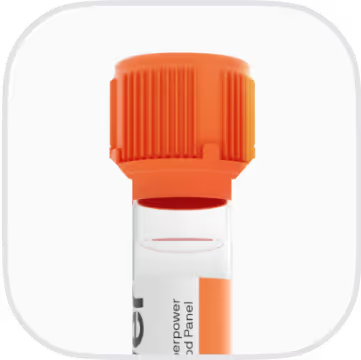What are Chronic Infection (Hep B/C/HIV/TB) biomarkers
Biomarkers for chronic infections like hepatitis B and C, HIV, and tuberculosis act as the body’s “status lights,” showing if the germ is present, how active it is, and how your immune system and organs are responding. Some markers come directly from the pathogen—pieces of the virus or bacterium (antigens), or its genetic material (DNA/RNA)—which confirm ongoing infection and help gauge contagiousness. Others reflect your body’s defense—protective proteins (antibodies) and cellular immune signals (T‑cell responses)—which reveal prior exposure, immune control, or loss of control. A third group shows collateral damage, especially to the liver in hepatitis—tissue injury and inflammation markers that indicate strain on vital organs. Together, these signals map disease stage (acute, chronic, latent), activity (replicating vs. quiet), and impact, guiding who needs treatment, when to start, and whether therapy is working (treatment monitoring). In short, chronic infection biomarkers translate hidden, long-running infections into actionable information for prevention, care, and long‑term health stewardship.
Why is blood testing for Chronic Infection (Hep B/C/HIV/TB) important?
- Spot overall inflammation with CRP/ESR and immune activity with WBC in chronic infections.
- Flag inflammation that warrants hepatitis B/C, HIV, or TB evaluation.
- Clarify if symptoms reflect flare, co-infection, or another inflammatory condition.
- Clarify immune reserve; low WBC may signal HIV-related suppression or marrow stress.
- Guide urgency and next steps while awaiting specific hepatitis, HIV, or TB tests.
- Track treatment response by watching CRP/ESR fall and WBC normalize over time.
- Protect fertility and pregnancy by flagging untreated inflammation linked to adverse outcomes.
- Best interpreted alongside viral load, TB testing, and your symptoms and exam.
What insights will I get?
Chronic infections like hepatitis B, hepatitis C, HIV, and tuberculosis can quietly disrupt many body systems over time. These infections may affect energy levels, metabolism, cardiovascular health, cognition, reproductive function, and especially the immune system. At Superpower, we assess your body’s response to these infections by measuring three key biomarkers: C-reactive protein (CRP), erythrocyte sedimentation rate (ESR), and white blood cell count (WBC).
CRP is a protein produced by the liver in response to inflammation. ESR measures how quickly red blood cells settle in a test tube, which also reflects inflammation in the body. WBC counts the number of white blood cells, which are crucial for fighting infections. In the context of chronic infections like Hep B, Hep C, HIV, or TB, these markers help reveal whether your immune system is persistently activated or under stress.
Stable, healthy levels of CRP, ESR, and WBC suggest that your immune system is not experiencing ongoing inflammation or infection. When these markers are elevated or abnormal, it may indicate that the body is actively responding to a chronic infection, or that there is ongoing tissue damage or immune activation. Persistent changes in these biomarkers can signal that the infection is affecting your body’s stability and overall function.
It’s important to note that CRP, ESR, and WBC can be influenced by factors such as age, pregnancy, recent illness, certain medications, and even laboratory methods. These variables are considered when interpreting your results to ensure an accurate understanding of your health status.







.avif)



.svg)





.svg)


.svg)


.svg)

.avif)
.svg)










.avif)
.avif)
.avif)


.avif)
.avif)




.svg)




.avif)


